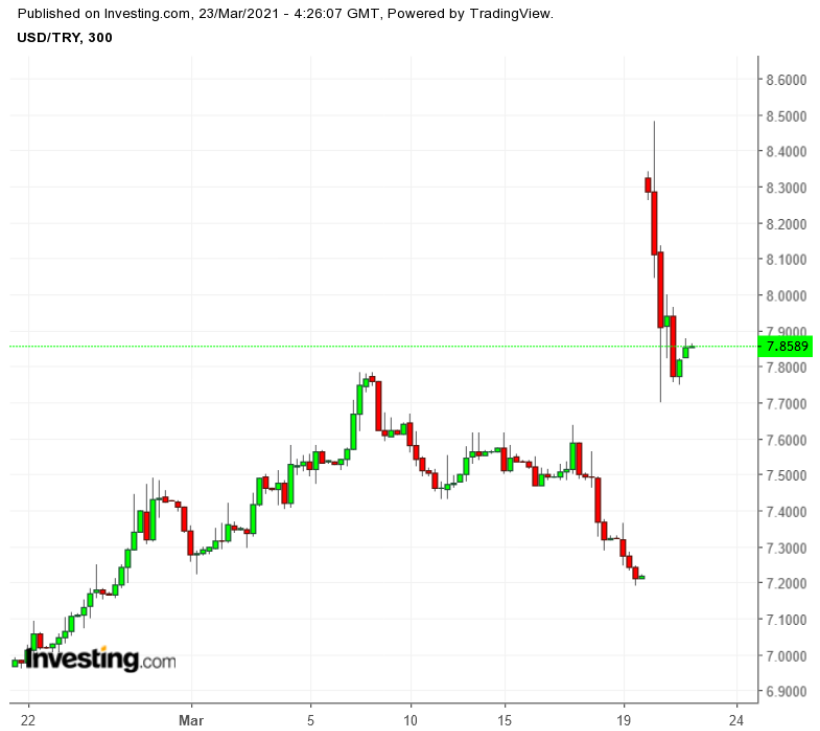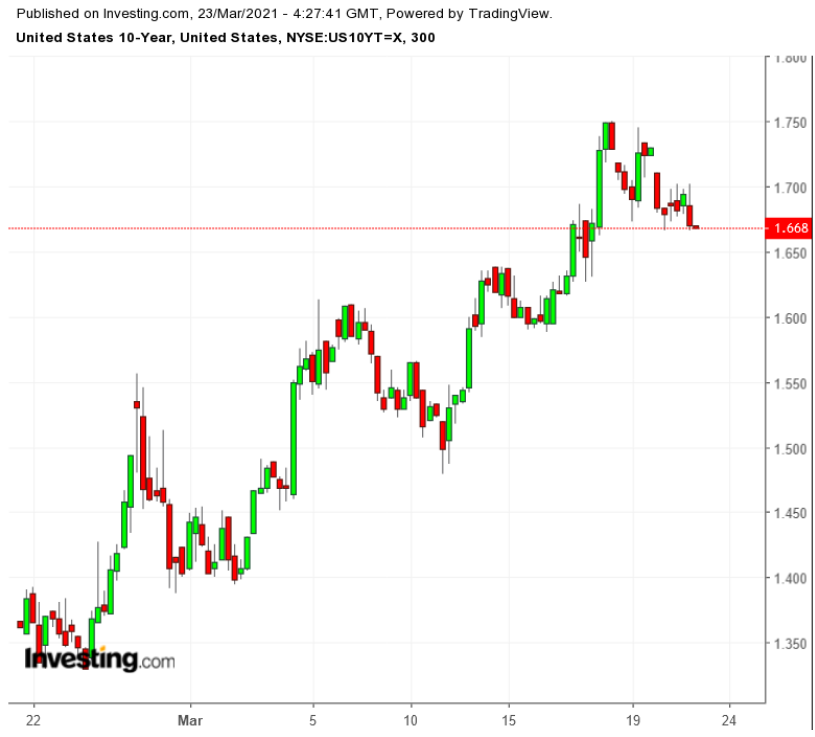Turkey’s president, Recep Tayyip Erdogan, bailed out the U.S. Federal Reserve by pushing out his own central bank chief without putting a parachute on the country’s currency.

The Turkish lira plummeted in foreign exchange markets and investors plowed into U.S. Treasuries, raising prices and pushing down yields.
Yield on the benchmark 10-year Treasury note had climbed above 1.7% by the end of last week after Fed Chair Jerome Powell reiterated the central bank’s new stance on tolerating inflation and the Fed said it would let a temporary exemption allowing banks to not count riskless assets like Treasuries in calculating a key capital ratio expire. Starting Mar. 31, banks will once again need capital to cover Treasuries holdings.

On Monday, the 10-year yield retreated below 1.69% for a while before heading back toward 1.7% (yields move inversely to prices) as investors decided the U.S. dollar is a safer bet than the Turkish lira. Erdogan is not an economist but he is an autocratic ruler who does as he pleases and he was not pleased by the high interest rate policy of his ousted central bank head, Naci Agbal.
The hapless Agbal, a former finance minister, believed it was necessary to keep hiking interest rates so people would not dump the lira. It seems he was right.
The 30-year U.S. Treasury bond yield, which had topped 2.5% last week, likewise retreated to below 2.4%.
The week ahead will feature numerous members of the policymaking Federal Open Market Committee sounding off, but if they keep to the Fed’s line of tolerating inflation to boost employment, they are not likely to inspire confidence in bond investors. Better to keep an eye on the Turkish lira.
Analysts generally expect Treasury yields to continue rising, and consider a breakthrough in the 10-year yield above 2% a real possibility.
The Treasury will keep up its heavy borrowing this week, with the auction of $62 billion in seven-year notes on Thursday particularly interesting after the ill-fated auction Feb. 25, when weak demand for seven-year notes sparked a selling frenzy.
The European Central Bank, true to its word, boosted its bond buys about 50% in the past week, buying some €21 billion of government and corporate bonds in its emergency purchase program.
Not that investors needed more incentive to flee into the safety of government bonds as the debacle of the European Union’s vaccine rollout and renewed lockdowns cast a pall over the bloc’s prospects for economic recovery.
The Turkey shock also roiled European markets. Yield on Germany’s benchmark 10-year bund fell about 3 basis points to hit minus 0.322, before bouncing back to above minus 0.310, while Italy’s 10-year bond yield ended down about 1 basis point.
Demand for sovereign bonds is running so high that even Greece was able to sell €2.5 billion of 30-year bonds last week at yield below 2%. The issue drew more than €26 billion in bids, following the pattern of massive oversubscription for eurozone bond issues.
Bigger countries like Spain and Italy, which still have positive yields, are drawing more than €100 billion in initial bids for new issues as ECB purchases buoy demand. Analysts are muttering about an inflation in order books, complaining they are no longer an accurate gauge of real demand.
